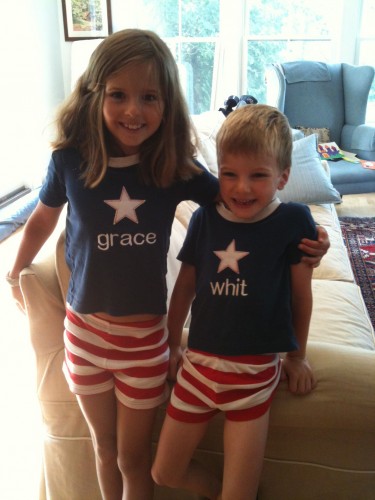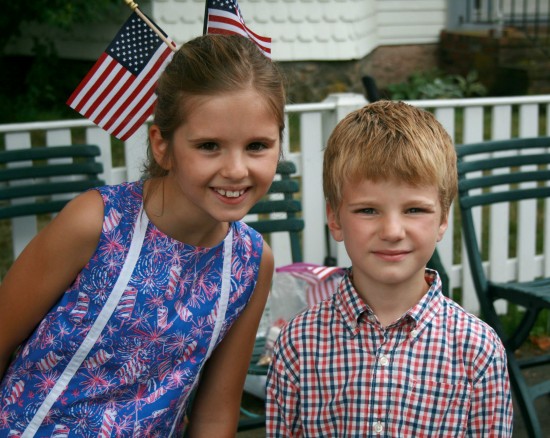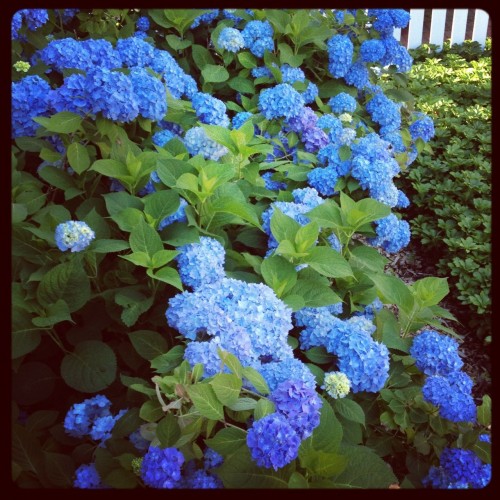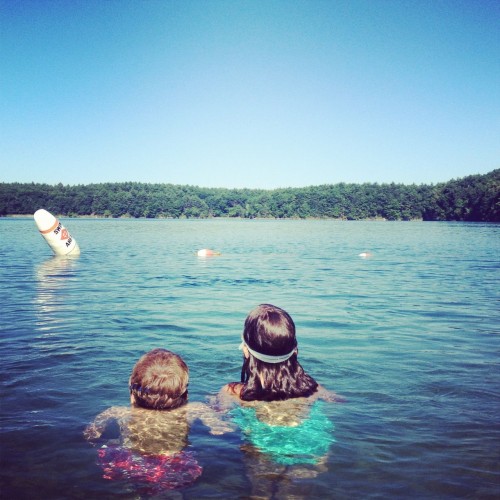
Last week Grace and Whit weren’t in any camps, because of the 4th of July and our plan to spend the second half of the week with my sister and family (just back from Jerusalem) at my parents’ house on the ocean. So we had a couple of unscheduled days to play with. One morning we went, early, to Walden Pond. That raw March morning when the three of us walked around the pond was almost a year and a half ago. It is a day that they both still refer to. It’s funny how that decision, made on a whim, to seek out the quiet of Walden and to trust that my children would respond to its calm yielded one of our most enduring recollections. A reminder that for me at least it is hard to predict which moments will crystallize into cherished memories, turned over in our minds like touchstones in our pockets, worn smooth with caressing.
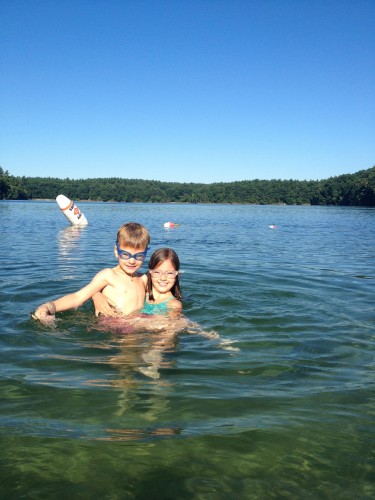 We woke to a clear blue early July morning and headed immediately west, hoping to beat the crowds that I know swarm Walden Pond on warm days. Arriving just before 8, we were almost alone. The children immediately walked into the water, marveling at how clear it was, and how warm. All three of us ducked under the first line and swam out, noticing that the water quickly grew darker, debating why this was. It got deep quickly, Grace noticed. And it did. After a bit of a swim we turned around and returned to where they could stand.
We woke to a clear blue early July morning and headed immediately west, hoping to beat the crowds that I know swarm Walden Pond on warm days. Arriving just before 8, we were almost alone. The children immediately walked into the water, marveling at how clear it was, and how warm. All three of us ducked under the first line and swam out, noticing that the water quickly grew darker, debating why this was. It got deep quickly, Grace noticed. And it did. After a bit of a swim we turned around and returned to where they could stand.
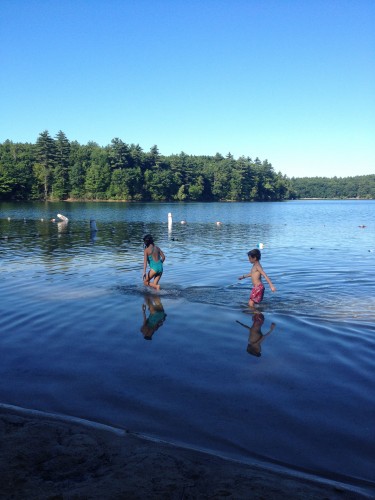
Then they played in the shallows chasing schools of almost translucent yellow fish. Their laughter rang in the quiet air. I hung back and watched them, hearing Thoreau in my head. I almost called the children over to quote the famous lines, to make sure they understood the importance of the place we stood. And then I caught myself. I didn’t need to point it out to them. They knew. They know.
I went to the woods because I wished to live deliberately, to front only the essential facts of life, and see if I could not learn what it had to teach, and not, when I came to die, discover that I had not lived.

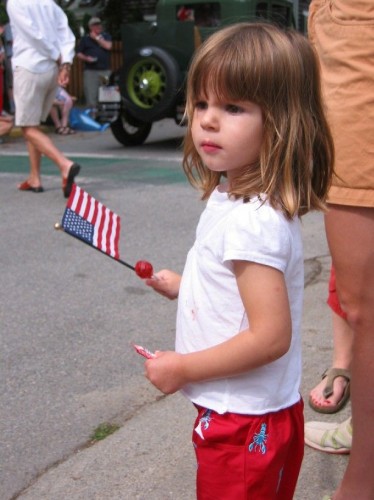
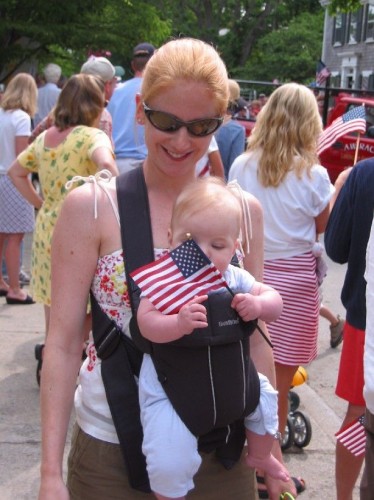 Whit, 2005
Whit, 2005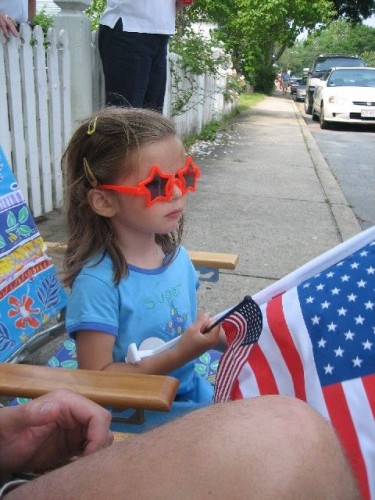 Grace, 2006
Grace, 2006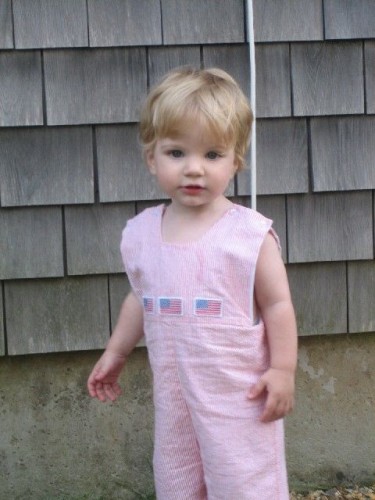 Whit, 2006
Whit, 2006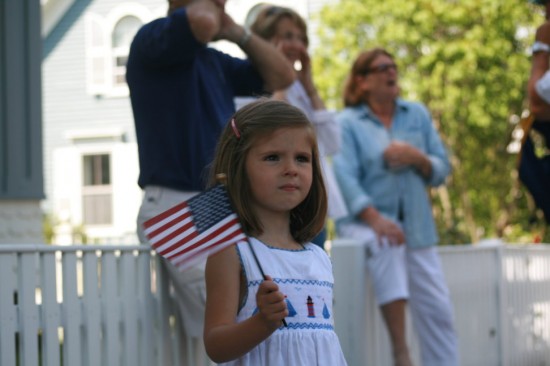 Grace, 2007
Grace, 2007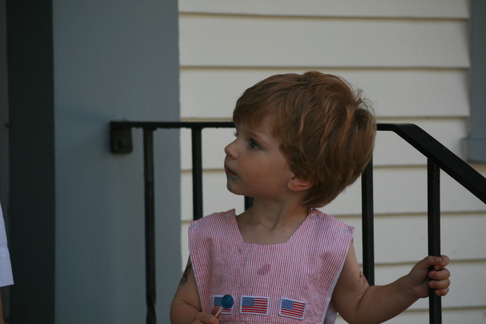 Whit, 2007
Whit, 2007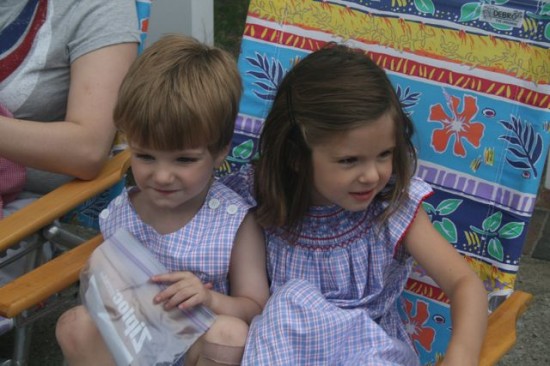 2008
2008 2009
2009 2010
2010